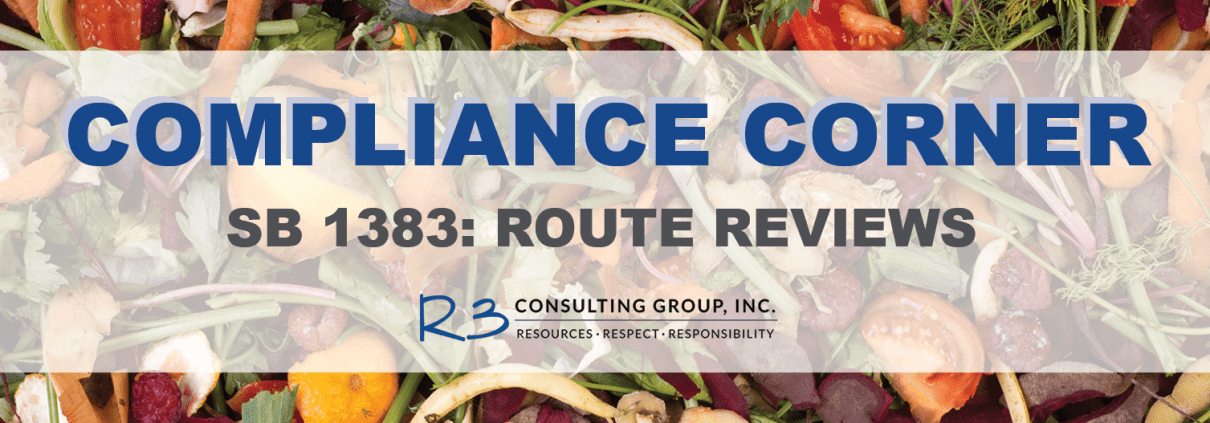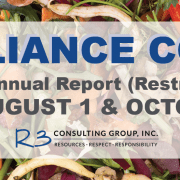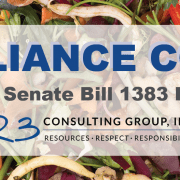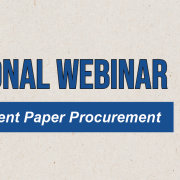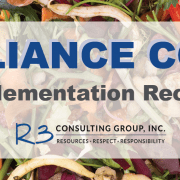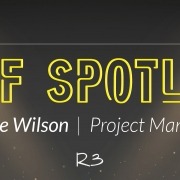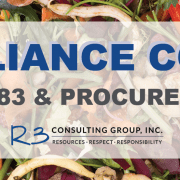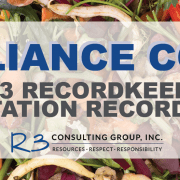Compliance Corner – July 2022
We’ve been talking about SB 1383 for months now (well, in these blog posts anyway – in reality for R3 it’s been years!) and you may be asking yourself….
“This SB 1383 stuff all sounds great in theory, but how do we actually get people to comply?”
The answer to that question is through enforcement. The enforcement provisions in SB 1383 support the efforts of jurisdictions, non-local entities, local education districts, state facilities and federal facilities, and CalRecycle to achieve the state’s climate goals and the 75 percent organic waste diversion goal by 2025 and into the future.
Enforcement efforts can be conducted by jurisdictions directly or through jurisdiction delegated entities. Jurisdictions can delegate responsibilities to contracted haulers servicing their respective cities/counties, or via agreement regional or governmental agencies. For example, a jurisdiction may require its contracted hauler to perform route reviews for container contamination, though the jurisdiction is still ultimately responsible for SB 1383 compliance requirements.
So for this month, we’re focusing on Route Reviews pertaining to SB 1383 compliance:
- What is a route review?
- What are a jurisdiction responsibilities?
- Who holds the jurisdiction accountable?
Route Review
A route review is a visual inspection of solid waste containers (typically carts for residential customers and/or bins for commercial customers) . The purpose of the route review is to inspect recycling of organics containers for contamination within the waste stream. Contamination is the placement of garbage within clean recycling or organics, placement of recyclables in the organics container, or placement of organics in the recycling container.
Jurisdictional Responsibilities
A jurisdiction is ultimately responsible for the oversight and enforcement of SB 1383 compliance and associated activities within its jurisdictional limits. As such, jurisdictions are required to ensure compliance by organic waste generators through the implementation of an inspection and enforcement program.
As of January 1, 2022, jurisdictions are required to conduct a “sufficient number” of annual route reviews to determine overall compliance. The regulations do not currently include a specific number of route reviews and inspections required each year, so it is ultimately up to the jurisdiction to determine an adequate amount based on the characteristics of their jurisdiction. Essentially, a jurisdiction is required to conduct enough route reviews and inspections each year to adequately determine the overall compliance of the generators under its authority and to ensure its own compliance to SB 1383.
There are a few ways of accomplishing this goal, including:
- A hauler can remotely monitor containers via a camera system and either the driver, a remote worker, or an automated program can identify contamination as the container is being collected
- A representative can select random containers along each route and, generally without disturbing the container’s contents, determine if there is contamination in the containers inspected
It’s important to note that while contamination is a violation of State and local law, this is the only violation that does not require a financial penalty. However, many haulers may assess penalties via their franchise agreements on generators for contamination, and this is allowed.
Jurisdictional Accountability
CalRecycle is responsible for the oversight and enforcement of SB 1383 compliance and associated activities of each jurisdiction. Compliance oversight for CalRecycle also includes the oversight of entities that are not subject to a jurisdiction’s compliance oversight but are still required to comply with SB 1383 requirements. These entities include non-local entities, local education districts, state and federal facilities, and other relevant entities.
Helpful Link

